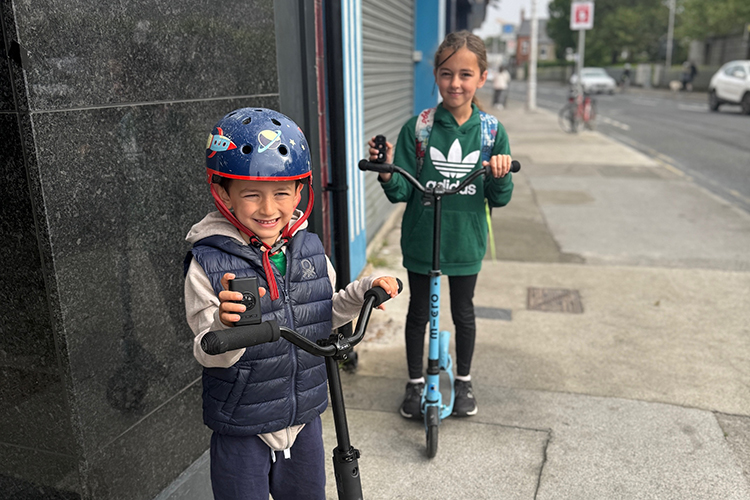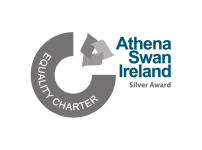Pilot study allowing children to identify road risks during school commute
29 May 2025

A pilot study encouraging children to record their daily journeys to school to improve road safety is soon to be expanded to further primary schools across Dublin.
Pupils at Harold’s Cross Educate Together NS are using GoPro cameras as part of a new citizen science project aimed at highlighting dangerous conditions for young pedestrians and cyclists.
These cameras are mounted on bikes, scooters and backpacks and record the hazards encountered on the daily commute to and from school, from speeding cars to risky junctions.
Run by (opens in a new window)Professor Francesco Pilla, UCD School of Architecture, Planning and Environmental Policy, the recordings captured by the children will be analysed to identify patterns and high-risk spots.
It is hoped that the data collected will inform policy makers on how the infrastructure could be improved to provide children with safe routes to their schools.
The initiative was launched during National Bike Week earlier this month.
Children walking, scooting or cycling to school at Harold Cross, in Dublin are wearing cameras to record their journeys and identify risk hotspots where children face danger as they go to school. (opens in a new window)@colmanos has the story. (opens in a new window)pic.twitter.com/FxDU2kLKrz
— RTÉ news2day (@news2dayRTE) (opens in a new window)May 14, 2025
"By systematically documenting and analyzing the unfiltered perspectives of children, we acquire crucial empirical data regarding the challenges they encounter within the road environment,” said Professor Pilla, explaining the data-driven case for road safety improvements.
“This qualitative data provides significant insight into prevalent hazards, including but not limited to, the direct observation of vehicular speeding, the experience of proximal collisions (near misses), and the navigation of substandard pedestrian crossings.
“Such direct accounts are indispensable for informing evidence-based interventions aimed at mitigating risks and enhancing road safety outcomes for this vulnerable demographic."
The project at Harold’s Cross is to be expanded to other schools across the country in September so that more data can be gathered and collated with information collected by other citizen science projects such as the (opens in a new window)active travel collision tracker set up by the local newspaper The Dublin Inquirer and the news website irishcycle.com.
Originally set up as a Dublin-focused cycling mapping system to find patterns of collision, this tracker was expanded in February of last year to cover the country and active travel generally.
"This initiative exemplifies the power of citizen science, transforming children from passive road users into active researchers,” said Professor Pilla.
“By equipping pupils with GoPro cameras to document their daily commutes, we are not just collecting data; we are empowering the most vulnerable members of our community to directly contribute to understanding and advocating for safer road environments.
“Their unfiltered footage of speeding vehicles, near misses, and inadequate infrastructure provides indispensable, firsthand evidence, forming a data-driven case for urgent and tangible road safety improvements."
By: David Kearns, Digital Journalist / Media Officer, UCD University Relations
To contact the UCD News & Content Team, email: newsdesk@ucd.ie







